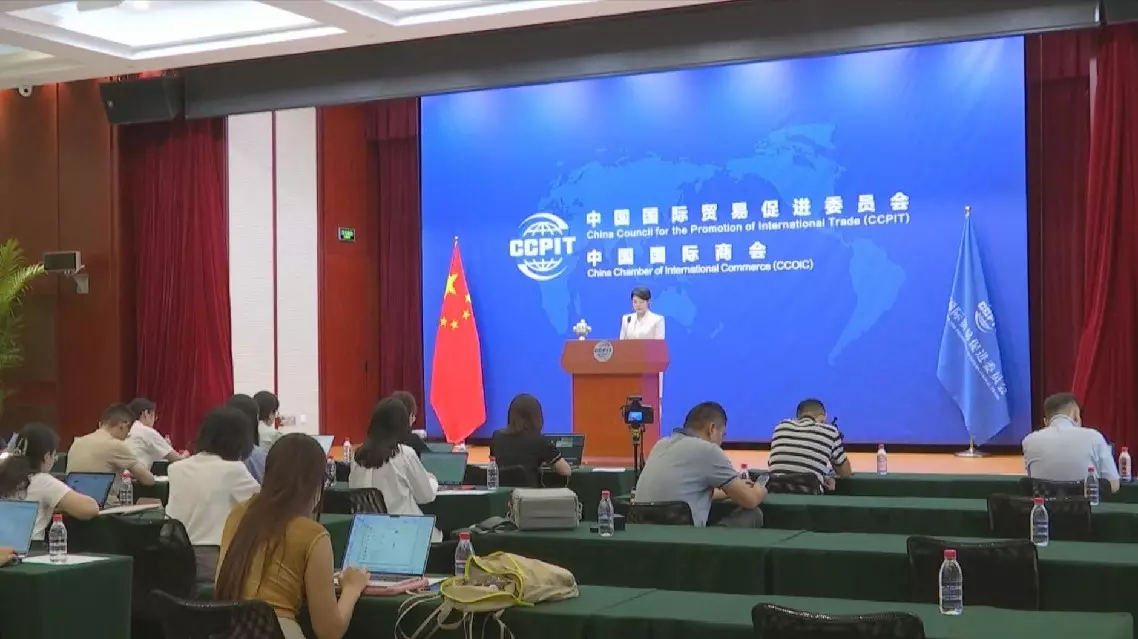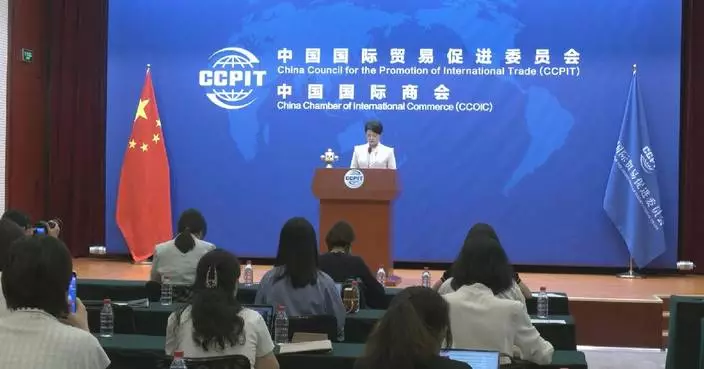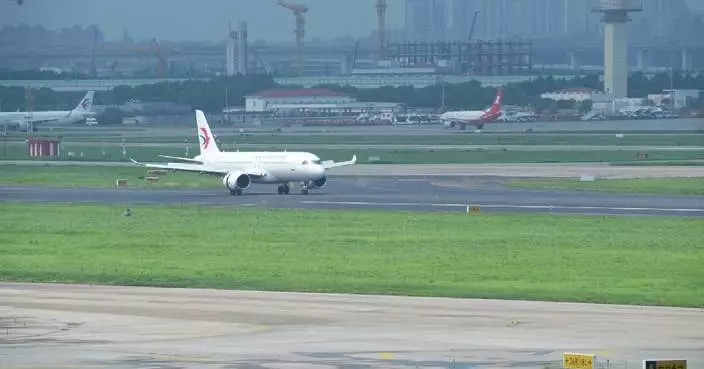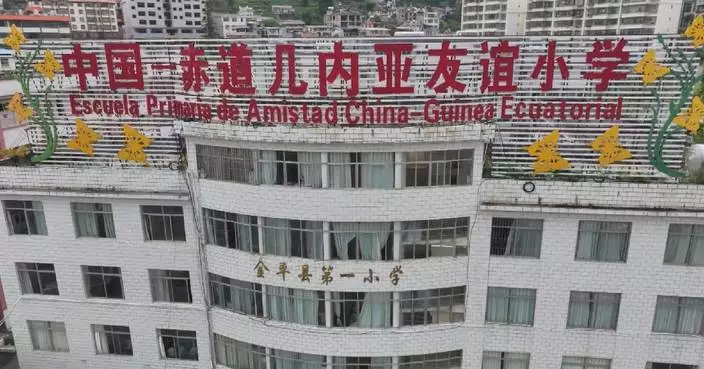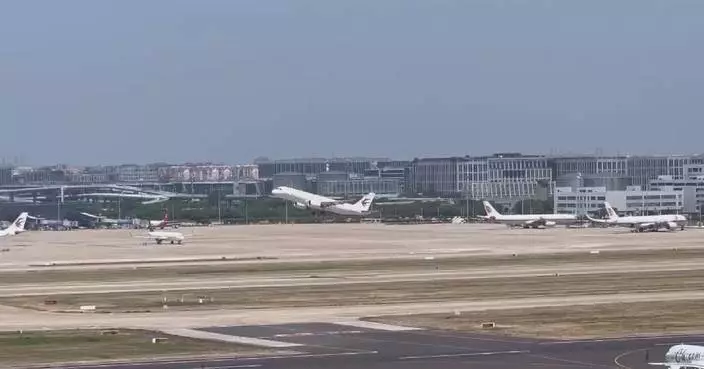Xi Jinping, Chinese president and general secretary of the Communist Party of China (CPC) Central Committee, has been committed to advancing Chinese modernization and leading the country to open up new horizons for Chinese modernization, in order to deliver a better life for the people and make the world a better place for all.
In the past decade and more for pursuing modernization, China has witnessed outstanding achievements made in multiple fields, such as Shenzhou spaceflight missions, Chang'e lunar exploration missions, launch of Zhurong and Xihe rovers for Mars and Sun respectively, the BeiDou Navigation Satellite System and other space projects, and launch of the deep-sea manned submersible Fendouzhe (Striver).
China has also built the world's largest high-speed rail network and expressway network, made breakthroughs in key and core technologies, and unleashed creativity and potential in terms of independent innovation for fruitful outcomes.
"In my opinion, innovation means to compete with our foreign counterparts on the same stage, and we can even surpass them," said Liao Xi, engineer with China Baowu Steel Group.
For more than a decade, China's GDP has increased from 57 trillion yuan (7.85 trillion U.S. dollars) to 126 trillion yuan (17.36 trillion dollars). China has continued to promote innovation-driven development, with its ranking on the Global Innovation Index climbing from 35th in 2013 to 12th in 2023. Average life expectancy, a key gauge of the health level of a country's residents, reached 78.2 years in China in 2021. The country's grain output has remained stable at more than 650 billion kilograms for nine consecutive years.
"Many gyms are now open to the public to boost national fitness," said Zhang Fei Lian, a Hangzhou resident.
"I am very proud of the development of our country. We are becoming more confident of our culture," said Jia Xinyu, worker engaged in construction sector.
When delivering a speech at a ceremony marking the centenary of the CPC on July 1, 2021, Xi said, "As we have upheld and developed socialism with Chinese characteristics and driven coordinated progress in material, political, cultural-ethical, social, and ecological terms, we have pioneered a new and uniquely Chinese path to modernization, and created a new model for human advancement." China's great course of deepening reform and opening up in the new era has become the fundamental driving force for promoting Chinese modernization. Since Xi took the helm as general secretary of the CPC Central Committee in 2012, he has personally led the country's relentless efforts on deepening reform and opening up, breaking institutional barriers and cracking the "hard nuts" along the way.
He chose south China's Guangdong Province, the pioneer of China's reform and opening up, as the first stop for an inspection trip after taking office. During the trip in December 2012, Xi made important statements that would later guide the country through the arduous journey of reform and opening up.
"Reform and opening up is a crucial move that will determine the destiny of contemporary China. It is also a crucial move that will determine the delivery of the two centenary goals and the great rejuvenation of the Chinese nation," he said.
When Xi became the country's top leader in 2012, China just stood at the crossroads of rapid development. At a time of momentous change of a scale unseen in a century, China faces more challenges as it is moving closer to the center of the world stage. At this critical juncture, Xi has keen insight into the mission and tasks of the new era, and holds high the great banner of comprehensively deepening reform and advancing opening up.
In 2013, Xi presided over the third plenary session of the 18th CPC Central Committee that approved an extensive reform plan and a seven-year implementation timetable.
The 60-point reform plan spelled out a comprehensive agenda containing 336 reform initiatives that cover all parts including the economy, politics, culture, society, ecological civilization, national defense, army and Party building. Xi has demanded firm actions, urging achieving decisive results in reform of important areas and crucial segments by 2020.
After the third plenary session of the 18th CPC Central Committee, Xi served as the head of a leading group on deepening overall reform, who has been at the helm charting the course with unprecedented efforts to open up new horizons for Chinese modernization.
"President Xi Jinping is the leader of a major country in the world who has rich experience. He gets deeply involved in aspects of social life, and has been to many places and knows everything about his country," said former French Prime Minister Jean-Pierre Raffarin.
"He (President Xi Jinping) also loves his country very much. He is very passionate about leading the government and the people of China to a stronger and better and brighter future," said President David Adeang of Nauru.
From the supply-side structural reform to elaboration on the new development stage, concepts and pattern, and promotion of high-quality development, as well as proposal of developing new quality productive forces, Xi has always grasped the pulse of reform and observed the law of development, putting forward a series of major theories featuring breakthrough and strategic significance for guidance. "We will steadfastly advance Chinese modernization, fully and faithfully apply the new development philosophy on all fronts, speed up building the new development paradigm, and promote high-quality development," said Xi when delivering his 2024 New Year Address.
China has surmounted numerous difficulties and obstacles over the past decade, and the advantages of the socialist system with Chinese characteristics have been transformed into effective governance. More than 2,000 reform measures have been rolled out, covering all basic necessities of life and the political, economic, cultural, social, eco-environmental and other fields.
China has issued guidelines to deepen household registration reforms in a comprehensive way. All public hospitals in Chinese cities have carried out comprehensive reforms to gradually establish a new mechanism for operation so as to better fulfill their public responsibilities and mobilize the enthusiasm.
The number of people covered by basic old-age insurance, unemployment insurance, and work-related injury insurance has been increasing in recent years, and efforts have been made to ensure that everyone in need received the benefits and assistance they were entitled to.
China has also built the largest education system in the world and its overall level of modern education development has reached the upper-middle range globally.
Chinese modernization is the modernization of a huge population, the largest scale in human history, and the most difficult modernization.
It is the modernization of common prosperity for all. The gains of modernization should benefit all people fairly.
It is the modernization of material and cultural-ethical advancement, which requires abundant material and intellectual wealth, and ideological and cultural confidence and strength.
It is the modernization of harmony between humanity and nature, respecting, accommodating, and protecting nature to promote the harmonious coexistence of human and nature.
It is also the modernization of peaceful development. China strives to safeguard world peace and development while pursuing its own development, and it will make greater contribution to world peace and development through its own development to promote the building of a community with a shared future for mankind.
It has been proven through practice that Chinese modernization is a sure path to build China into a great modern socialist country in all respects and realize the great rejuvenation of the Chinese nation and Chinese people are gaining from the country's endeavors to pursue Chinese modernization. "We all know the famous line put forward by President Xi that lucid waters and lush mountains are invaluable assets. We are protecting the lucid waters and lush mountains to make money," said Qu Sanmei, owner of an agritainment farmhouse.
"The country really keeps people's welfare in mind. Although we are old, we hope that we will stay healthy and live longer to witness more great changes taking place in all aspects of our country, which will also benefit us all," said Zhong Qing, a retiree.
Xi said on many occasions that there is more than one road to achieving modernization, and every nation has the right to pursue its own path to modernization.
"The successful practice of the Chinese people shows that there is more than one road to achieving modernization, and as long as we keep to the right direction and make tireless efforts, all roads will lead to success," said Xi when addressing the opening ceremony of the annual conference of the Boao Forum for Asia in 2018.
The ideas and practices from China over the past decade and more have not only changed China, but also profoundly affected the world.
From eradication of absolute poverty to joint building of the Belt and Road Initiative (BRI), from the Global Security Initiative, Global Development Initiative to the Global Civilization Initiative, over the past ten plus years, China has provided a useful experience for other developing countries that share a common future, continuously injected strong momentum into global development and brought fresh opportunities, and continued to offer Chinese wisdom and solutions for solving problems and challenges facing humanity.
"I'm noticing that with that leadership, President Xi Jinping is offering new types of development for the world. And I think that he is succeeding. And on the other side, more and more countries will follow the path of development based on this philosophy," said President of the Republic of Suriname Chandrikapersad Santokhi.
"I think, he's a very charismatic leader, who loves the people of his country. The way the economy of the country has risen up is remarkable under his leadership," said Mohamed Muizzu, President of the Republic of Maldives.
"I'm convinced that the world needs stronger leaders today. Now China has produced, may I say, provided one of the strongest political leaders of the world," said Hungarian Prime Minister Viktor Orban.
Under the guidance of Xi, hundreds of millions of Chinese people are creating a new history together. This road to achieving Chinese modernization will surely promote the great rejuvenation of the Chinese nation and bring infinite power to global development.
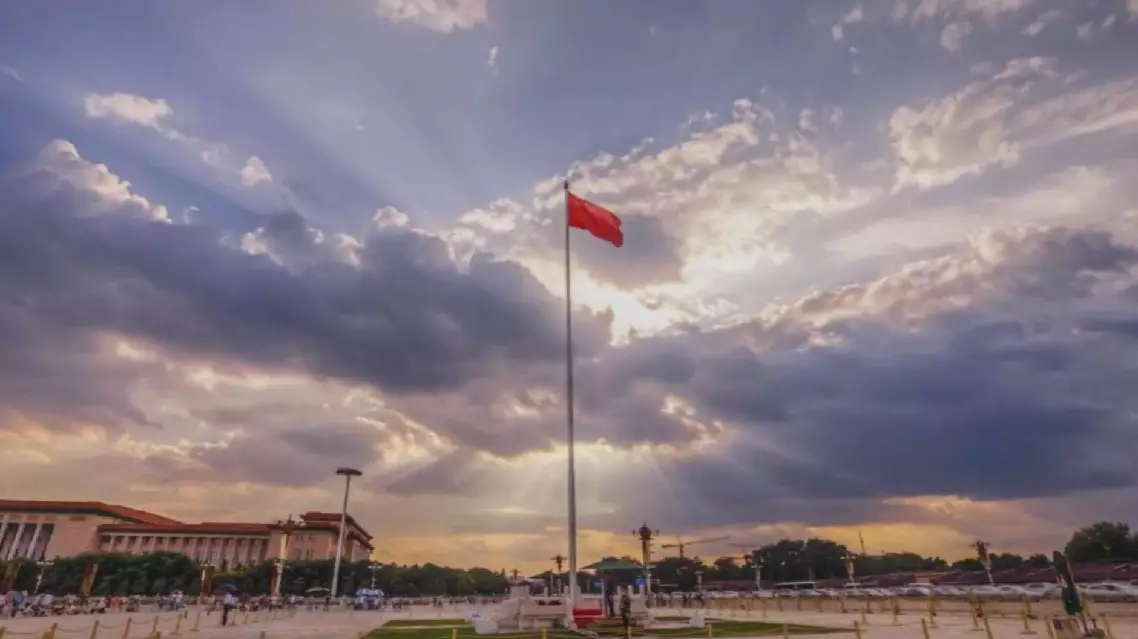
China committed to advancing Chinese modernization for national rejuvenation, global prosperity


